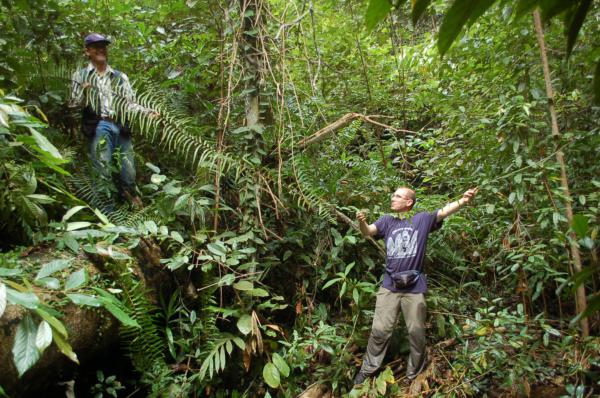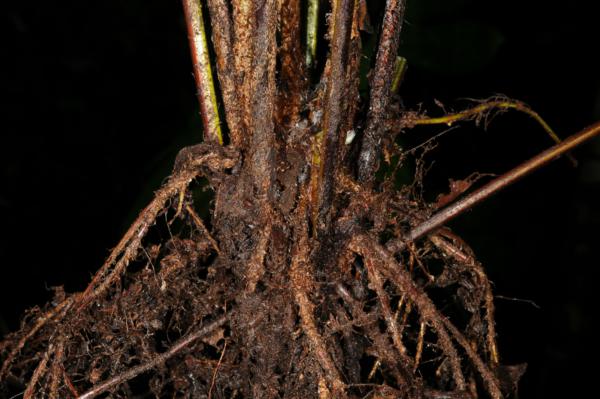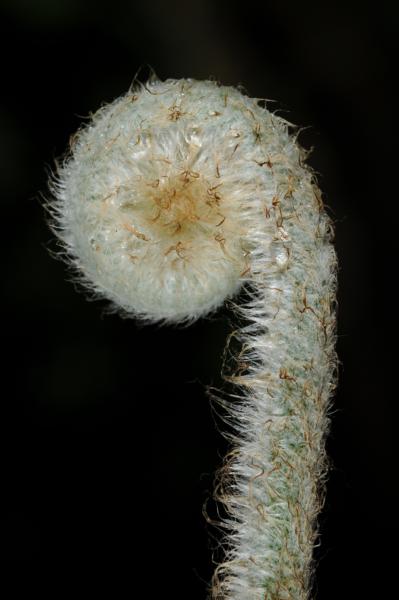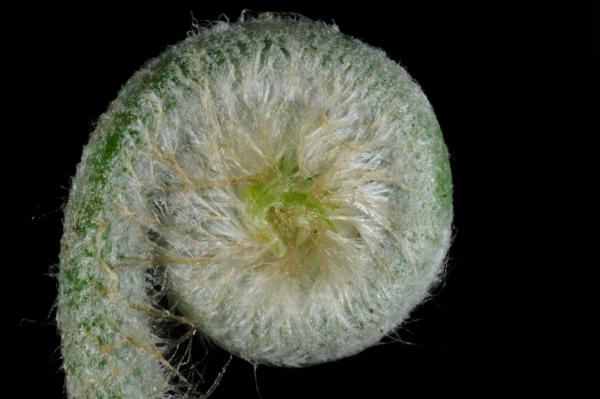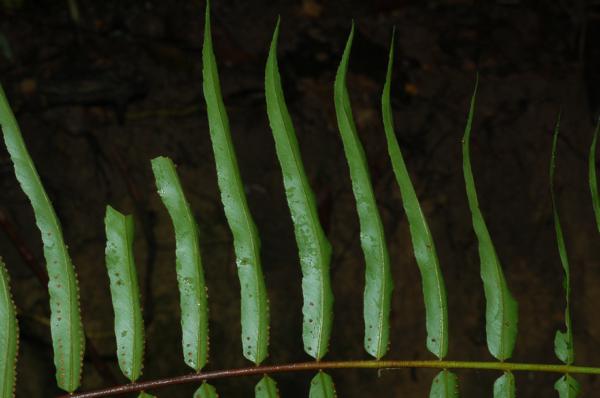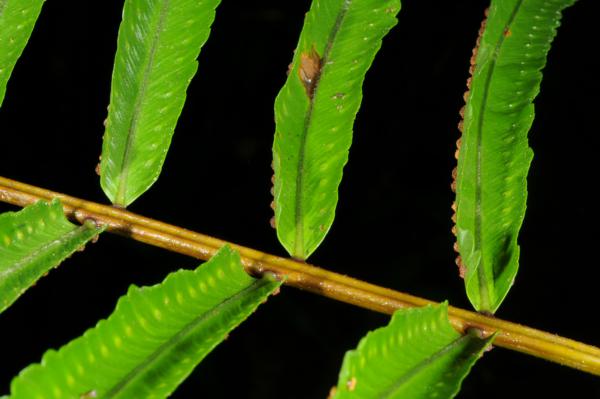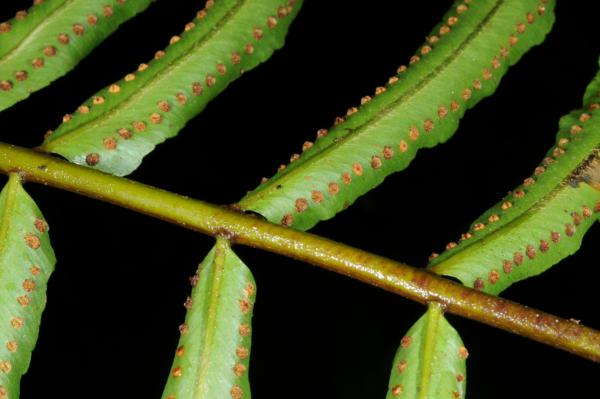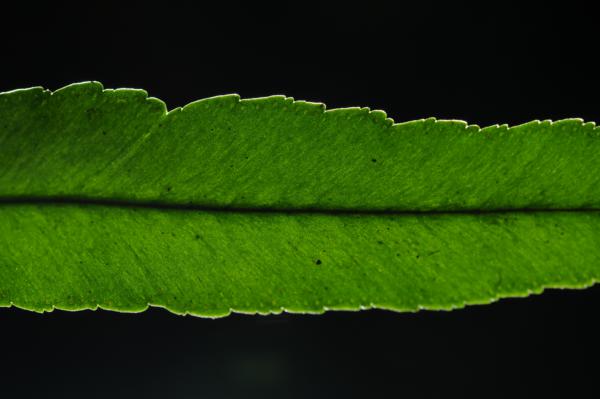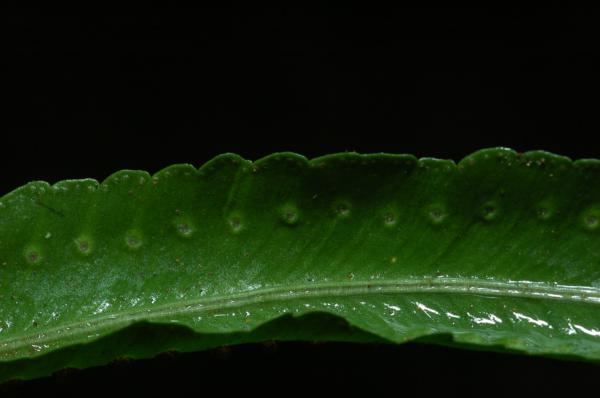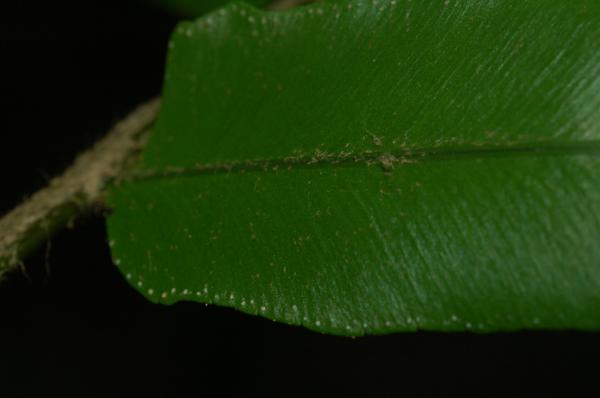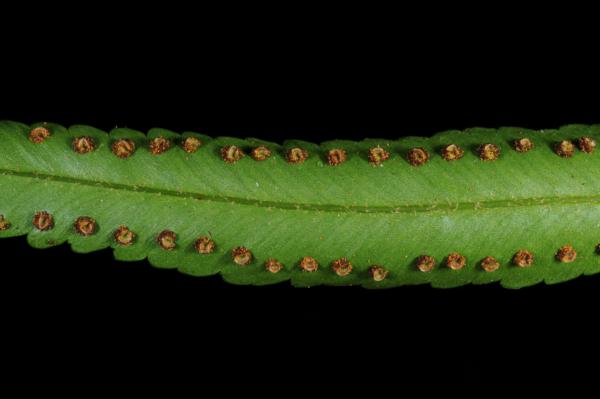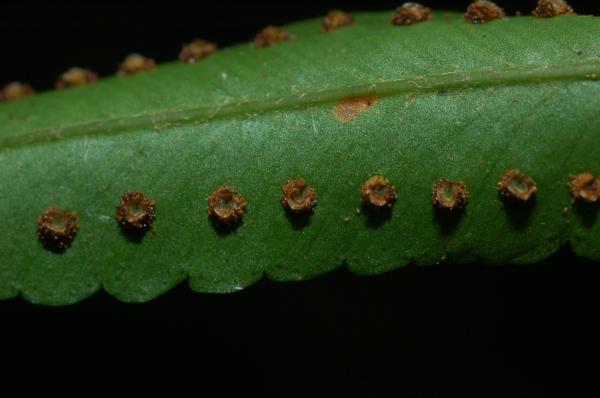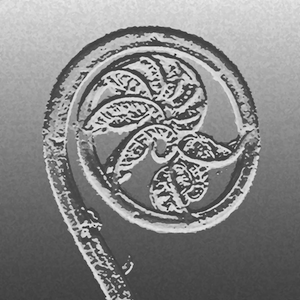
Nephrolepis biserrata (Sw.) Schott
Family
Lomariopsidaceae
Nomenclature
Nephrolepis biserrata (Sw.) Schott, Gen. Fil. ad t. 3. 1834; E.Smith, J. Siam Soc., Nat. Hist. Suppl. 8: 6. 1929; C.Chr., Contr. U.S. Natl. Herb. 26: 331. 1931; Holttum, Rev. Fl. Malaya ed. 1, 2: 380, f. 217. 1955 [‘1954’]; Holttum, Dansk Bot. Ark. 20: 26. 1961; Seidenf., Nat. Hist. Bull. Siam Soc. 19: 86. 1958; Ching, Fl. Reipubl. Popularis Sin. 2: 316, pl. 28, f. 5 & 6. 1959; Tagawa & K.Iwats., Fl. Thailand 3: 175. 1985; Boonkerd & Pollawatn, Pterid. Thailand: 237. 2000; Hovenkamp & Miyamoto, Blumea 50: 290. 2005; Leti et al., Fl. Photogr. Cambodge 554. 2013. – Aspidium biserratum Sw., Schrad. J. Bot. 1800(2): 32. 1801.
Aspidium acutum Schkuhr, Krypt. Gew. 1: 32, t. 31. 1806. – Nephrolepis acuta (Schkuhr) C.Presl, Tent. Pterid.: 79. 1836; Bedd., Handb. Ferns Brit. India: 284. 1883; Hosseus, Beih. Bot. Centralbl. 28(2): 365. 1911; Tardieu & C.Chr., Fl. Indo-Chine 7(2): 291. 1941.
Description
Rhizome ascending or suberect, bearing a few fronds drooping at apex, numerous wiry roots, and stolons; scales gradually narrowing from base towards tailed apex, up to 5 mm or more long, 0.8 mm broad, brown, with hairy or irregular margin, thin and usually ferrugineous. Stipes up to 40(–100) cm long, stramineous, densely scaly with narrower scales. Laminae large, usually more than 150(–385) by 30(–40) cm, lanceolate, narrowing towards both apex and base, pinnate; lateral pinnae up to 70 or more pairs; middle ones about 3 cm apart, larger, patent or slightly falcate at posterior end, linear-lanceolate, acuminate to caudate at apex, cuneate at base, sessile, serrate at margin of posterior part, up to 15(–24) by 1.5(–2) cm, thin but stiff; veins forked near costa, posterior branches sometimes forked again at middle part, minutely scaly on costa and even on laminar surface. Sori round, in one row at 1/3–1/2 way from margin to costa; indusia reniform, round, glabrous , about 1.5 mm diam.
Distribution in Thailand
NORTHERN: Chiang Mai, Chiang Rai; EASTERN: Ubon Ratchathani; CENTRAL: Bangkok; SOUTH-EASTERN: Chon Buri, Trat; PENINSULAR: Surat Thani, Phangnga, Nakhon Si Thammarat, Trang, Satun, Songkhla, Yala, Narathiwat.
Distribution in Cambodia
Koh Kong.
Wider Distribution
Pantropical.
Ecology
Epiphytic or terrestrial in lowlands and mountainous areas.
Proposed IUCN Conservation Assessment
Least Concern (LC). This species is widespread and not under any known threat.
Voucher specimens - Thailand
Middleton et al. 5189, Ubon Ratchathani, Phu Chong Nayoi National Park (E).
Voucher specimens - Cambodia
Long et al. CL497 & CL538, Koh Kong (P).
Scrambling frond
Rhizome
Crozier
Crozier
Pinnae
Upper surface of rachis and pinnae
Lower surface of rachis and pinnae
Upper surface of pinna
Upper surface of fertile pinna
Hydathodes at upper margin of pinna
Lower surface of pinna and sori
Sori
Site hosted by the Royal Botanic Garden Edinburgh. Content managed by Stuart Lindsay, Gardens by the Bay, Singapore and David Middleton, Singapore Botanic Gardens. Last updated 24 January 2012
